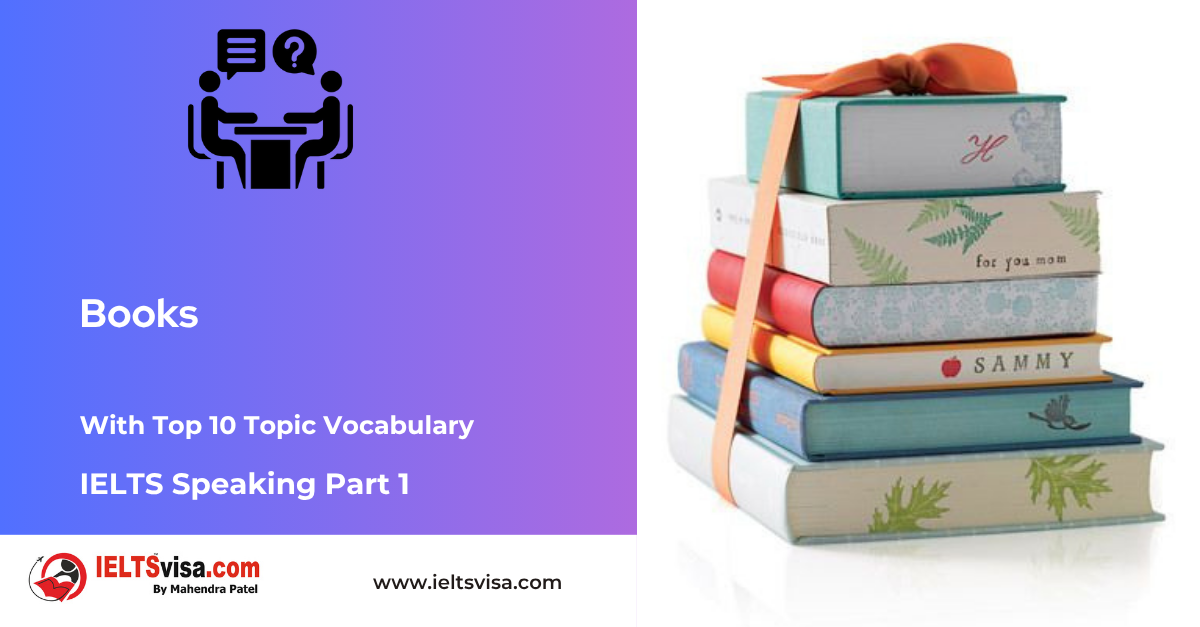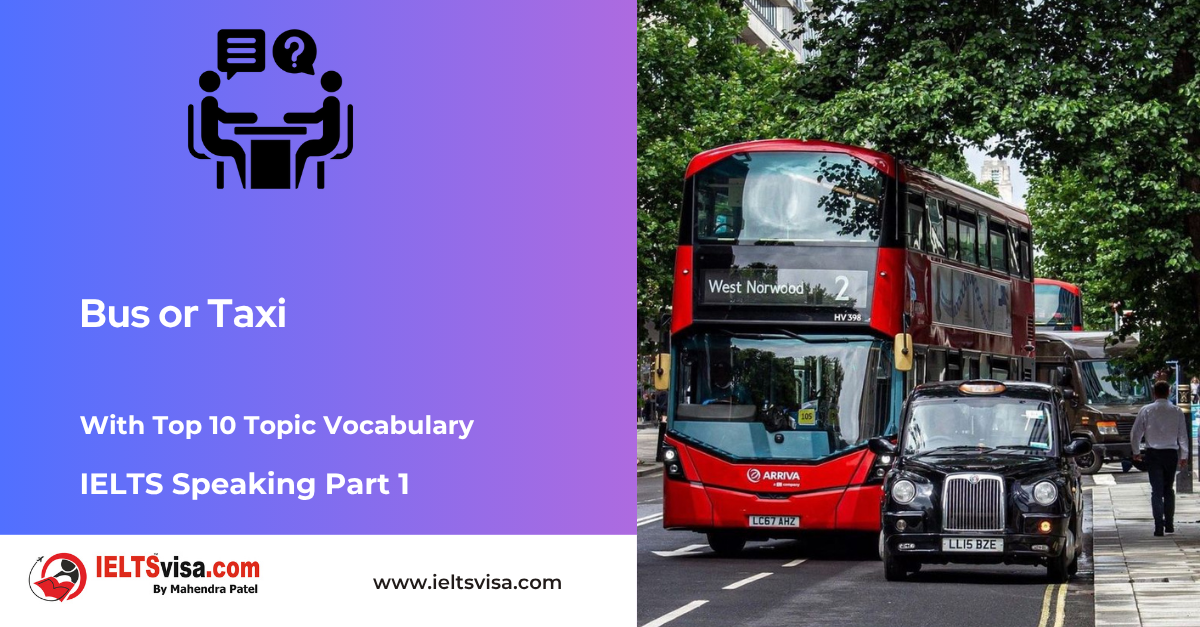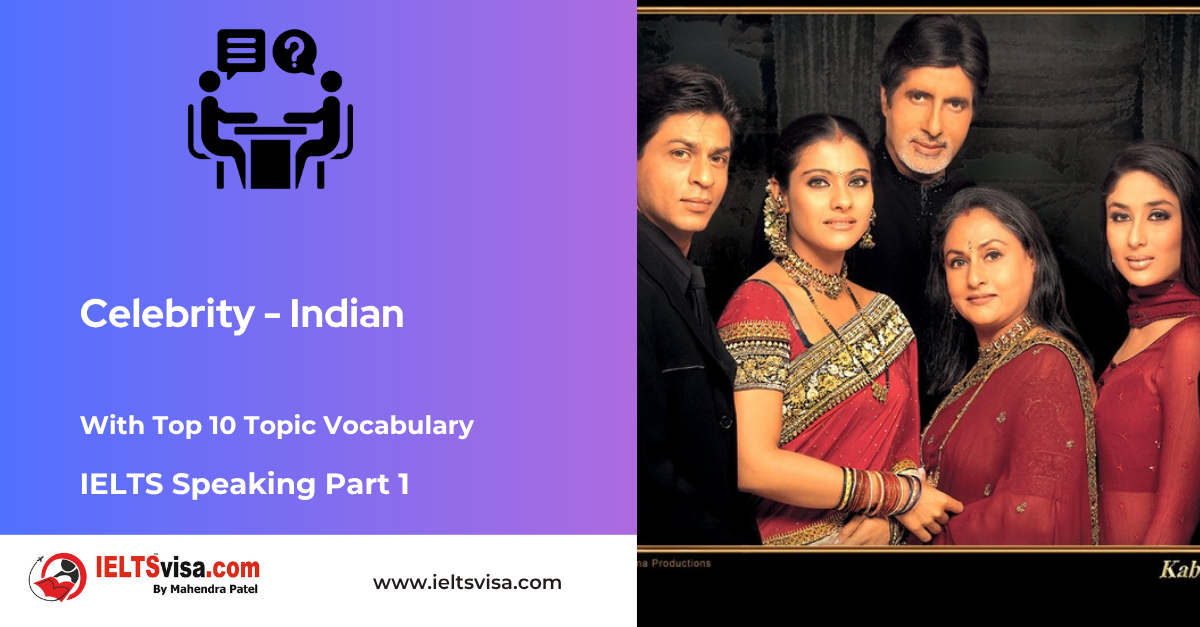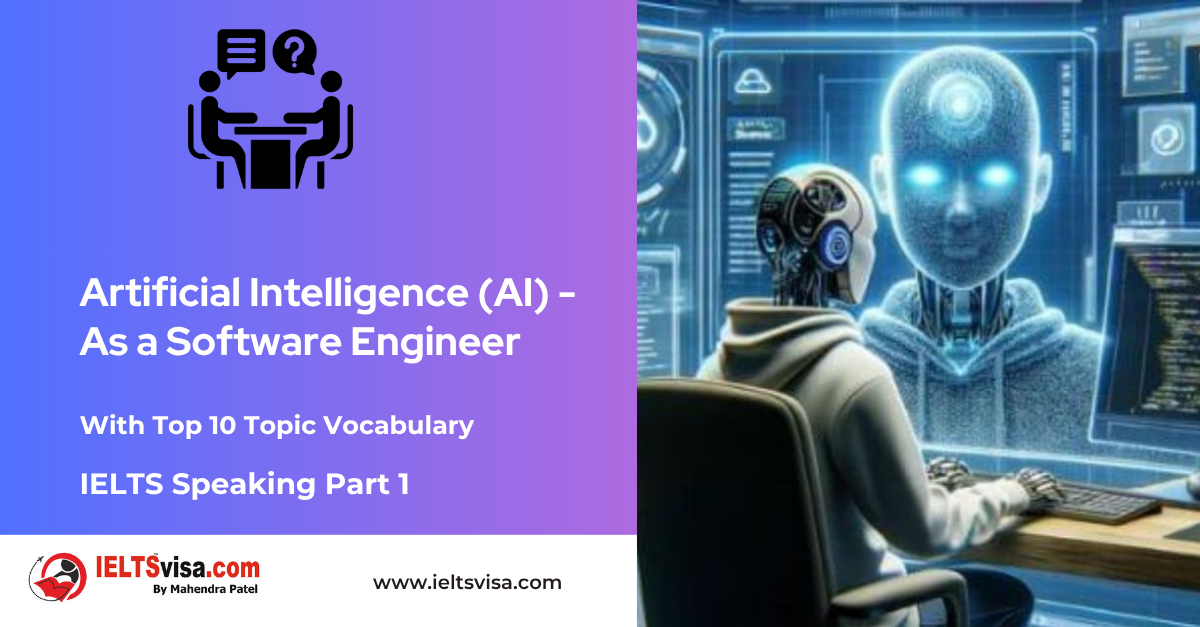IELTS Speaking Part 1 – Artificial Intelligence (AI) as a Singer
IELTS Speaking Practice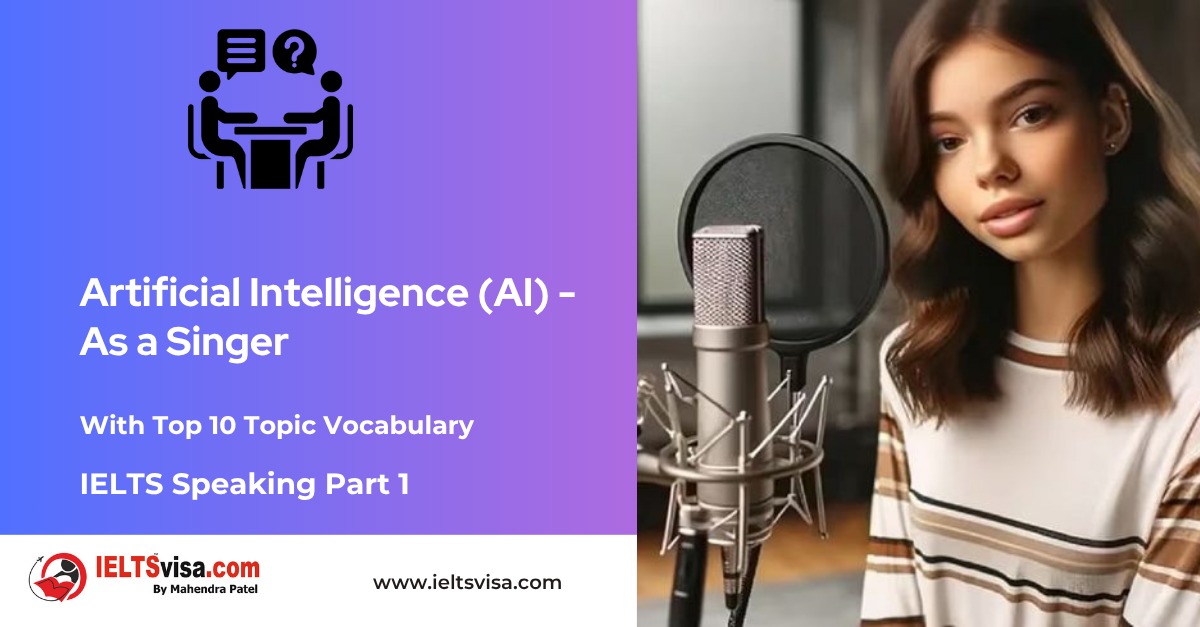
IELTS Speaking Part 1 – Artificial Intelligence (AI) – As a Singer
Examiner: How do you see AI impacting the music industry?
Candidate: AI is transforming the music industry by automating music composition, production, and even performance analysis. It helps artists experiment with new sounds and streamline their creative workflows.
Examiner: Have you ever used AI tools in your music career?
Candidate: I’ve experimented with AI tools for mixing and mastering tracks. These tools can analyze the music and make adjustments that enhance the overall sound quality.
Examiner: Can AI create original music?
Candidate: AI can create original music. There are AI programs that compose melodies, harmonize, and even generate complete songs based on specific parameters and inputs.
Examiner: How do you feel about AI-generated music?
Candidate: AI-generated music is fascinating and offers new possibilities for creativity. However, I believe it should complement human artistry rather than replace it, as human musicians’ emotional depth and personal touch are irreplaceable.
Examiner: Do you think AI can help singers improve their skills?
Candidate: Absolutely. AI can provide personalized feedback, suggest improvements, and even simulate different vocal techniques, which can be very beneficial for singers looking to refine their craft.
Examiner: Are there any AI tools designed explicitly for vocal training?
Candidate: Some AI-powered apps and tools help with vocal exercises, pitch correction, and performance analysis. These tools can provide real-time feedback to help singers improve their technique.
Examiner: How can AI assist in songwriting?
Candidate: AI can assist in songwriting by generating lyrics, suggesting chord progressions, and creating melody ideas. This can help songwriters overcome writer’s block and explore new creative directions.
Examiner: What are the ethical considerations of using AI in music?
Candidate: Ethical considerations include the potential loss of jobs for musicians and producers, the ownership of AI-generated music, and ensuring that AI complements rather than replaces human creativity.
Examiner: Do you think AI will change the role of producers and sound engineers?
Candidate: AI will likely change their roles by automating some technical aspects of production. However, the creative decision-making and unique artistic insights human producers and engineers provide will always be essential.
Examiner: Can AI help in analyzing audience preferences?
Candidate: AI can analyze large amounts of data to understand audience preferences, helping artists tailor their music to meet listener tastes better and predict trends.
Examiner: How do you stay updated with AI advancements in music?
Candidate: I stay updated by following industry news, attending conferences, and participating in workshops focusing on the latest AI technologies and their applications in music.
Examiner: Are there any drawbacks to using AI in music production?
Candidate: One drawback is the potential loss of the human touch in music, as AI-generated content might lack the emotional depth and nuance that comes from human experiences and creativity.
Examiner: How might AI influence live performances in the future?
Candidate: AI could enhance live performances through real-time sound adjustments, creating interactive stage effects, and even generating live visualizations that respond to the music.
Examiner: Do you think AI will replace human musicians?
Candidate: I don’t think AI will replace human musicians, but it will undoubtedly change how we create and experience music. The human element in music is irreplaceable and will always be at the heart of artistic expression.
Examiner: What is your overall opinion on integrating AI into the music industry?
Candidate: I see AI as a powerful tool that can augment human creativity and open up new possibilities in music. As long as we use it responsibly and maintain the human touch, it can greatly benefit the industry.
Top 10 Topic Vocabulary for “Artificial Intelligence (AI) – As a Singer”
|
Vocabulary |
Type |
Meaning |
Synonyms |
Antonyms |
Word Family |
Example Sentences |
|
Automate |
Verb |
Perform or operate with little or no human intervention |
mechanize, computerize, robotize |
manual, manual, handmade |
automation |
AI can automate many routine tasks in the music industry. |
|
Streamline |
Verb |
Make more efficient or simpler |
simplify, rationalize, optimize |
complicate, make more complex, make more difficult |
streamlining |
AI can streamline the music production process. |
|
Experiment |
Verb |
Try something new or different |
test, trial, attempt |
avoid, refrain from, abstain from |
experimentation |
The singer experimented with different AI tools to enhance their music. |
|
Parameters |
Noun |
A limit or boundary that defines the scope of something |
limits, constraints, boundaries |
freedom, openness, unrestricted ness |
parameter |
The AI program generated music based on specific parameters. |
|
Complement |
Verb |
Add to something in a way that enhances or improves it |
enhance, supplement, reinforce |
detract from, diminish, reduce |
complementary |
AI can complement human creativity in music production. |
|
Refine |
Verb |
Make something more perfect |
improve, enhance, perfect |
worsen, deteriorate, decline |
refinement |
The singer used AI tools to refine their vocal technique. |
|
Chord progressions |
Noun |
A series of chords played in succession |
chord sequences, chord patterns, harmonic progressions |
chord |
The AI program suggested different chord progressions for the song. |
|
|
Ethical considerations |
Noun |
Moral or philosophical issues that need to be considered |
moral dilemmas, ethical questions, ethical concerns |
ethical |
The ethical considerations of using AI in music are complex. |
|
|
Nuance |
Noun |
A subtle difference or distinction |
subtlety, fine point, nicety |
crudeness, coarseness, vulgarity |
nuanced |
AI may struggle to capture the nuances of human emotion in music. |
|
Interactive stage effects |
Noun |
Visual or auditory effects that involve audience participation |
audience participation, audience engagement, interactive experiences |
interactive |
AI can create interactive stage effects that respond to the music. |

Our Books
Master IELTS Speaking Part 1
IELTS Writing Task 1 Book
IELTS Writing Task 2 Book
Practice IELTS Other Modules
IELTS Listening
The IELTS Listening test assesses how well you can understand spoken English in various contexts. It lasts about 30 minutes and is divided into four sections with a total of 40 questions. The listening tasks become increasingly difficult as the test progresses.
IELTS Academic Reading
The IELTS Academic Reading section assesses your ability to understand and interpret a variety of texts in academic settings. It is designed to evaluate a range of reading skills, including skimming for gist, reading for main ideas, reading for detail, understanding inferences, and recognizing a writer's opinions and arguments.
IELTS Speaking
The IELTS Speaking test assesses your ability to communicate in English on everyday topics. It lasts 11-14 minutes and consists of three parts: introduction, cue card, and a discussion based on the cue card topic.
IELTS General Reading
IELTS General Reading tests your ability to understand and interpret various types of texts. Here are some key areas and types of content you can expect to encounter in the reading section, along with tips for effective preparation.
IELTS Academic Writing Task 1
In IELTS Academic Writing Task 1, you are presented with a visual representation of information, such as graphs, charts, tables, or diagrams, and you are required to summarize, compare, or explain the data in your own words.
IELTS General Writing Task 1
In IELTS General Writing Task 1, you are required to write a letter based on a given situation. The letter can be formal, semi-formal, or informal, depending on the prompt. Here’s a breakdown of the key components to include in your letter
IELTS Academic Writing Task 2
In IELTS Academic Writing Task 2, you are required to write an essay in response to a question or topic. Here’s a guide to help you understand the essential elements of this task
IELTS Exam Tips
To succeed in the IELTS exam, practice regularly, familiarize yourself with the test format, improve your vocabulary, develop time management skills, and take mock tests to build confidence.
Grammer for IELTS
Grammar is the foundation of effective communication in English. Understanding tense usage, subject-verb agreement, and sentence structure enhances clarity and coherence in writing and speaking.
Vocabulary for IELTS
Vocabulary plays a crucial role in the IELTS (International English Language Testing System) exam, especially in the Speaking and Writing sections. Here’s an overview of why vocabulary is important and how it impacts your performance
RECENT IELTS SAMPLES QUESTIONS AND ANSWERS
IELTS Speaking Part 1 – Boats
IELTS Speaking Part 1 - Boats Examiner: Have you ever been on a boat?Candidate: Yes, I have been on a boat a...
IELTS Speaking Part 1 – Books
IELTS Speaking Part 1 - Books Examiner: Do you like reading books?Candidate: Yes, I enjoy reading books very...
IELTS Speaking Part 1 – Bus or Taxi
IELTS Speaking Part 1 - Bus or Taxi Examiner: How do you usually get around town?Candidate: My preferred mode...
IELTS Speaking Part 1 – Celebrity (Indian)
IELTS Speaking Part 1 - Celebrity (Indian) Examiner: Do you have a favourite celebrity?Candidate: My favourite...
IELTS Speaking Part 1 – Celebrity – Sports (Indian) – Virath Kohali
IELTS Speaking Part 1 - IELTS speaking part 1 - Celebrity - Sports (Indian) - Virath Kohali Examiner: Who is...
IELTS Speaking Part 1 – Artificial Intelligence (AI) As a Software Engineer
IELTS Speaking Part 1 - Artificial Intelligence (AI) As a Software Engineer Topic: Artificial Intelligence (AI)...


